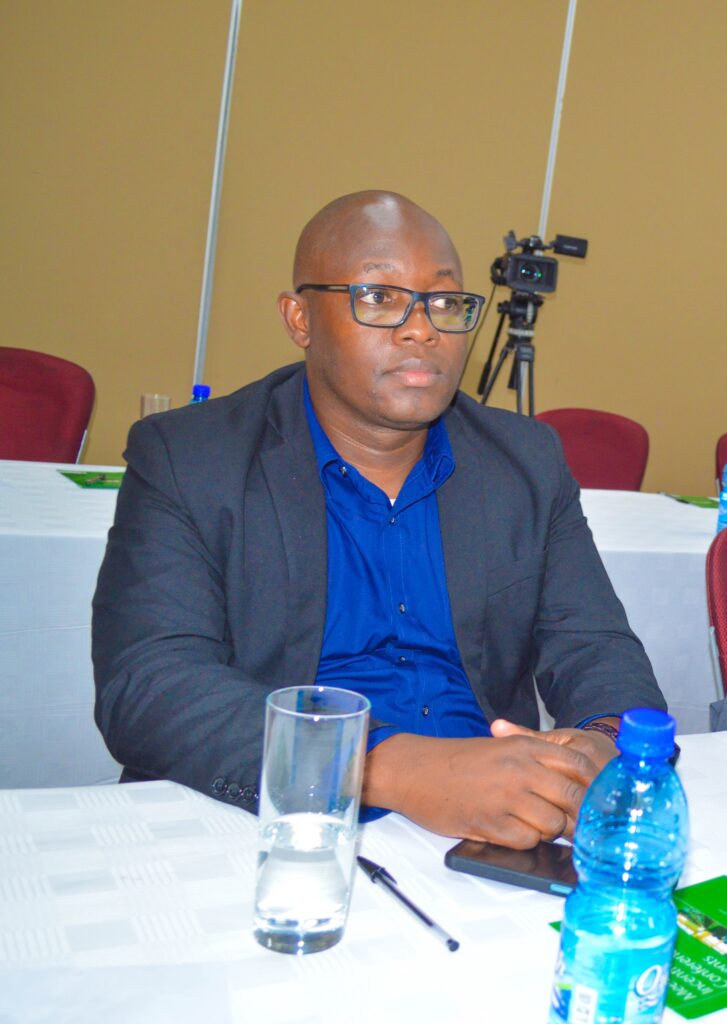By Yamikani Yapuwa

Blantyre, February 23, Mana; Jack aged 10, learns at one of the prestigious schools in Blantyre. At his age, he is already into technology. He has a dual sim tablet and a laptop at home which are connected making it easy for him to surf the internet.
Jack says he can install apps from the Play Store as well as operating the laptop on his own without the help of an adult.
His mother, a Mrs. Tembo says she bought a tablet for Jack to use in 2020 after the lockdown due to covid 19.
“When schools closed, Jack’s school was offering lessons virtually as such he needed a gadget with internet for such to happen.
“After the lockdown, we left the tablet with him and he can still access the internet,” she explains
She adds that she does not monitor what Jack does on the internet but believes he only accesses educational sites, play games and watch cartoons on You Tube.
A report by UNICEF indicates that the internet can expose children to great harm like hate speech, violent content including messages that incite self-harm and suicide to children if proper supervision is not done.
For instance, in UK, Archie Battersbee,12 was found unconscious at his home on April 7, 2022 with a chord around his neck after he tried an online challenge called the ‘Blackout Challenge’. He was in a coma after a brain injury and eventually died.
The E-Safety Commission reports that one in three children have experienced some form of cyber bullying and harassment while 47percent of teenage children have received a sexual message.
The Commission also reports that 30 percent of teenagers have been contacted by a stranger online while 67 percent of adults have experienced some form of cyber harassment and misinformation.
Locally, Malawi Police Service’s Head of Digital Forensic and Cyber Crimes Unit Gladwel Kubwalo says Cyber Bullying and Child Pornography cases are rampant and commonly reported to their offices.
ICT Association of Malawi (ICTAM) President Clarence Gama states as the country plans to increase internet and mobile device penetration, there is need to take into consideration the impact this may have on children.

“Children and young adults are inquisitive, once you give them a gadget, they would want to explore more. You can give them access for education purposes only but they will still use them for additional works.
“We now have a wide range of devices. We used to have desktops but now we are talking of tablets, phones, television sets. We would like to see that there is proper security when children and young adults are using the gadgets,” he says.
Furthermore, Gama feels that parents have a huge responsibility to only allow internet access to children who are at an age where they can make sound decisions on their own.
“It is not easy to restrict internet access but parents should not let children who are not fit to make sound decision on their own have access to the internet to protect them from the harms.
“The internet is a limitless space where all types of information can be obtained, parents, teachers and guardians should work together to regulate the type of information that children of certain ages have access to. This will help build a better and responsible Malawi,’ says Gama.
Concurring with Gama, Airtel Malawi’s Assistant Digital Experience Manager, Madalitso Matemba notes that parents nowadays give gadgets and internet access to children without monitoring or supervising what they are doing.
“Our plea to parents is to be vigilant to monitor the activities that their children do online. A child can lie that he is accessing education materials when in actual sense they are on Tik Tok, WhatsApp or Facebook. So, checking regularly and giving them proper advice is crucial.
“Further, parents have an obligation to ensure that young children do not access inappropriate content. For example, you will see a child below 18 years on Facebook, a thing which just shows that they are not controlling what the kids are installing on their gadgets,” says Matemba at the 2023 Safer Internet Day commemoration in Blantyre.
As a control aspect, Gama points that there are several technical interventions that parents can use to help promote safe internet usage for children like the parental control software which allows parents to set limits on their children’s internet use, block inappropriate content, and monitor their online activity.
“They can also use web filtering software to blocks access to inappropriate or harmful websites and content as well as antivirus software which protect against viruses, malware and other online threats that can compromise children’s safety while online,” adds Gama.
On top of that, Matemba, says Airtel also offers routers with parental control features which enable parents to block websites which are not fit for children and control the time their children access internet.
Moreover, during a panel discussion on 2023 Safer Internet Day, TNM’s Chief Information Officer Peter Munthali adds that parents can also utilise the various platforms like Android which allows people to register as children and have a parental account controlled by the parents thereby restricting a child from installing apps as well as accessing sites without the parent’s approval.
On its part, Malawi Communication Regulatory Authority (MACRA) Director of Economic Regulation Andrew Nyirenda says they are doing awareness campaigns targeting children and young adults in regards to safe use of internet.
“We believe that the more we give them the information and the more we give them the good and the bad side of the internet, they will be aware.
“We know we cannot control what they do on the internet because most of the time they are doing this on their own but as policy makers we need to strategies, put initiatives such as awareness campaign that they should know what they are supposed to do on the internet,” says Nyirenda.
He adds that currently Malawi with technical assistance from International Telecommunication Union (ITU) is in the process of developing a national Child Online Protection Strategy.
“Some of the key areas in the strategy are promotion of child rights, encouraging and helping the children to report when abused online as well as enhancing awareness.
“Every half a second, every day, a child goes online for the first time tapping into all the great opportunities the Internet has to offer but facing grave risks, so it is a call for us to protect them from sexual exploitation, cyber bullying, and the misuse of their private information,” says Nyirenda.
To conclude, Kubwalo warns those exploiting children online that child pornography attracts a 15 years’ jail term and K10 million.
“Let me warn people who are doing this criminal activity of child pornography that if found guilty, they will have to serve a jail term of more than 15 years plus 10 million Malawi Kwacha, that is ‘and’ not ‘or’ like an option,” cautions Kubwalo.


